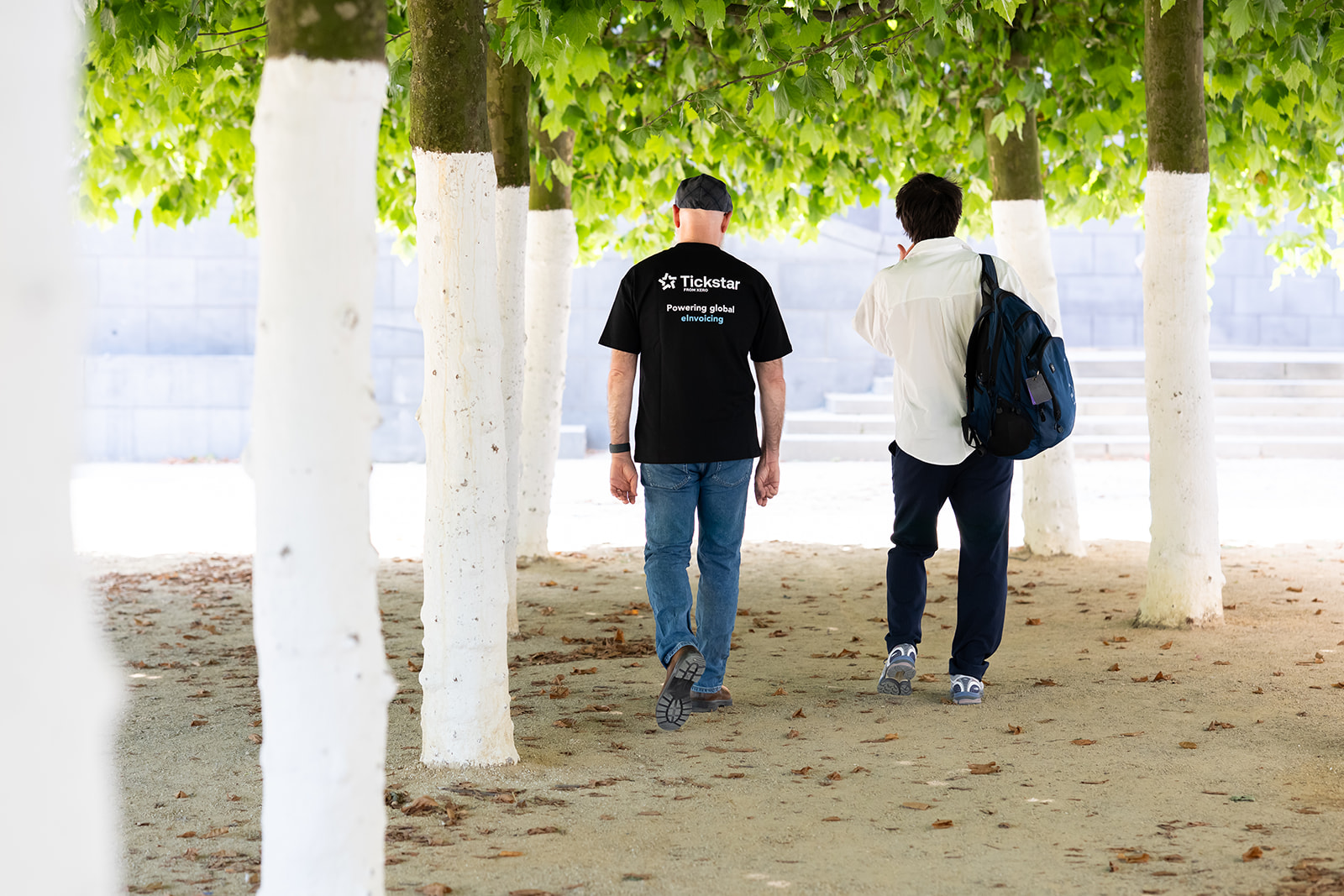Who is Simon Foster?
Simon Foster is the Global Director of E-invoicing at Xero, an accounting platform that serves over 4.4 million small businesses across the English-speaking world—from Australia and New Zealand to the UK, US, Singapore, and South Africa.
Aside from his professional role, Simon is deeply involved with the organisation OpenPeppol and the global movement towards interoperable e-invoicing, balancing his day job with a kind of "missionary" commitment to the digital transformation of invoicing worldwide. He actively contributes to the Peppol community and serves on several non-profit boards.
What are the key trends currently shaping the Peppol debate?
One of the dominant themes at this year’s Peppol conference is e-reporting and tax reporting via e-invoicing (VIDA). This reflects a shift away from purely technical discussions towards more substantial debates concerning policy, compliance, and national digital strategies.
There is a noticeable increase in the presence of government and tax authority representatives at the conference. They are becoming more vocal, advocating for faster implementation and greater international harmonisation. Simon believes this development lends increased legitimacy and urgency to the technical ecosystem: “We’re no longer just a couple of hundred experts worldwide. The user base, the policy discussions, and the stakes are all growing rapidly.”
We need to talk about Interoperability
At the same time, the debate around interoperability is gaining momentum. Simon acknowledges that progress is being made, although the path is not always straightforward. “Governments are demanding higher standards now. That’s a good thing. But with each country’s unique environment, the risk of fragmentation is real.”
He urges nations to avoid unnecessary deviations from established standards, citing seemingly minor changes—such as using three-letter ISO country codes instead of the standard two-letter versions—as potentially disruptive.

Peppol and the GSM Analogy
To illustrate how global e-invoicing standards may evolve, Simon draws a compelling analogy: the development of GSM and mobile telecommunications networks.
Just as GSM began as a European initiative and ultimately became the global standard for mobile roaming and connectivity, Peppol is following a similar trajectory—originating in Europe and now expanding to Australia, New Zealand, Singapore, Japan, Malaysia, and the UAE.
“Interoperability, security, identity—it’s all déjà vu from the GSM journey. Hopefully, we won’t need 20 years this time.”
From EU roots to global reach
The Peppol model was originally developed within the EU VAT zone, where a harmonised legislative framework provided fertile ground for its implementation. However, countries outside this zone—such as Singapore and Australia—faced entirely different regulatory and market conditions.
Singapore’s successful adoption demonstrated that what began as a European standard could, in fact, go global. This success inspired other countries, including Australia, New Zealand, and Japan, to follow suit.
Today, the focus extends well beyond addressing intra-EU challenges. The ambition is to establish a global digital infrastructure for trade—enter Peppol International, or PINT.
Designing PINT: Lessons from a Belgian Café
While working on the design of PINT, Simon noticed that the analogy of a Belgian café often emerged in workgroup discussions. It served as a relatable, real-world example of how e-invoicing tools could meaningfully support small businesses.
Think about it: if you run a café, improving how you handle invoices can make a big difference. You can manage suppliers more efficiently, avoid manually entering bills, and ensure everything feeds directly into your accounting system.
And if you have a few regular customers—say, nearby offices or event organisers—who don’t pay on the spot, you’ll need to issue invoices. Naturally, you want to be paid promptly. That’s another area where the invoicing system can really help.
Designing PINT for global use raised important questions—even for this simple persona. If an invoice arrives from abroad, how is the café owner supposed to know whether it’s valid—or even genuine? They shouldn’t have to worry about that. They just want to run their café and make great coffee.
Grounding the design in real user personas proved vital. The Belgian café became a recurring reference point throughout the development process.
The Professionalisation of OpenPeppol
Simon has witnessed OpenPeppol’s evolution from a grassroots, volunteer-led initiative into an international organisation requiring professional governance.
“Growth brings complexity. Cultural diversity, multilateral decision-making, and now institutional stakeholders like the European Commission make it essential to professionalise.”
This transition has not been without its challenges, but Simon views it as a positive development:
“It’s a good problem to have—it means we’re scaling.”

Summary
As Peppol continues to evolve—from its European origins to a truly global digital infrastructure—it faces both opportunities and challenges. The increasing involvement of governments, the push for interoperability, and the focus on real-world users like the Belgian café all highlight a broader shift: this is no longer just about technology, but about building trust, efficiency, and inclusivity in global trade.
With professional governance in place and a clear vision for expansion, Peppol is well positioned to drive the next wave of digital transformation in invoicing—bringing benefits not only to large enterprises but also to small businesses worldwide. As Simon aptly puts it, the journey is well underway, and the future looks promising.